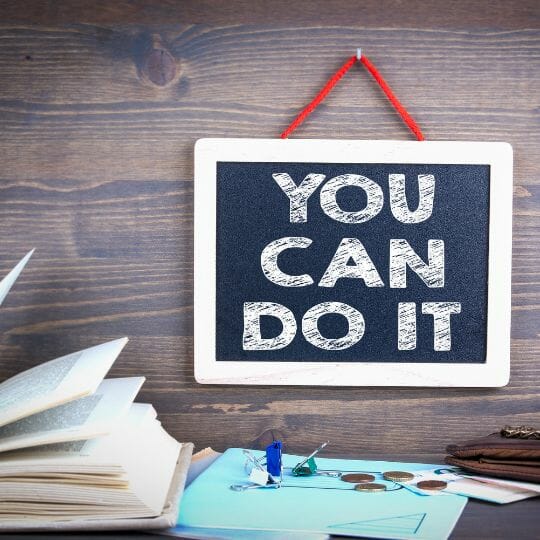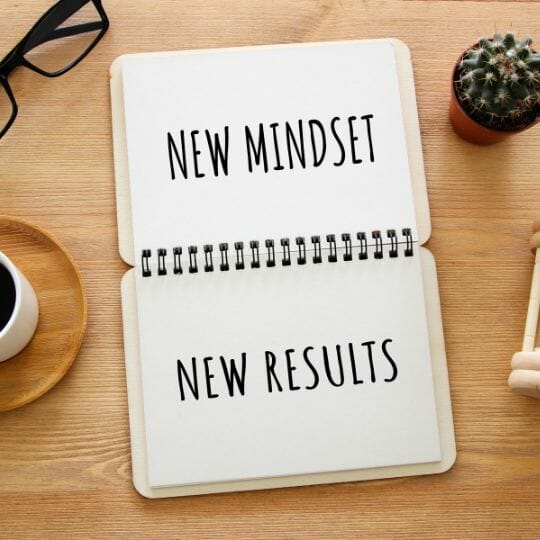
Despite extensive training, a lot of professionals talk about having impostor syndrome and fear of not being good enough. But what do you do about that? How do you flip that on its’ head and tackle impostor syndrome so that you can become a confident coach?
Impostor syndrome is rife in many professions – I know, because I’ve been through it, and I’ve spoken to a lot of people who struggle with it.
Today I want to talk to you about WHY you need to be enough and stop impostor syndroming yourself.
I think the key reason that you need to feel that you are enough, good enough, worthy, and competent, is that then you can switch your focus off your own shortcomings and onto your clients.
Let’s face it, if you’re worried about your own performance, then you’re not giving all of your attention to the people you are purporting to help and support.
I think this is SO critical. This was a realisation I had when I started coaching. I was so busy worrying about what to do, whether my questions were good enough, whether they got something out of the session, whether they were engaged and so on, that it was taking up a LOT of real estate in my head.
I was feeling anxious and would be nervous going into each session.
THEN one day I reflected on how my feelings and energy would be seen and felt by the people I was coaching. What would they say?
By worrying about my performance, I was creating a self-fulfilling prophecy. I was creating tension where there wasn’t really any.
But most importantly, I realised this behaviour was about me spending too much time thinking about ME and my shortcomings, rather than my client.
This aha moment flicked the switch for me and allowed me to totally change the way I showed up, coached and the impact of my coaching. It was amazing.
Here are some benefits and outcomes of dealing with your impostor syndrome.
Firstly, when you invest in overcoming your impostor syndrome you become more confident as a person and as a coach. You feel good about what you do and your ability to give value. That means that you invest more time thinking about the people that you’re helping, rather than your own
shortcomings. It means that you are flipping the switch from a focus on you to a focus on your clients.
Imagine how that changes their experience of working with you. Imagine how that changes their relationship with you in a coaching sense. And imagine how that therefore impacts the results that they get from the coaching relationship.

Secondly, if you deal with impostor syndrome and start believing that you can do this, that you are good enough, you be willing to invest enough in your own personal and professional development – because you know that it is worth it for your clients and that you are worth it. The ripple effect is more advanced skills that will make you a better coach, giving your clients better outcomes.
I think it’s really important when you’re starting any new career to know that you are not going to get it right all the time – ever. It’s important to manage your own expectations and to know that you will do things wrong and get things messed up along the way. And that’s totally okay.
What’s more important is your commitment to investing in your own self-belief, personal development and professional development so that you can deal with those mistakes more easily, with grace and candour.
So how do you get there? How do you beat it and become the best coach you can be, so that you can help people create their desired outcomes and impact the lives of more people?
Personal Development
Start by working with your own coach. That way, you will improve your own thoughts habits, well-being and sense of purpose, so that you can be a role model for your clients. Being a strong role model promotes self-confidence.
A reflective practice is also a must for all graduate coaches. After each coaching session, reflect on what went well, how you used your strengths, the verbal and nonverbal feedback from clients, and any areas for work. Write it down. Then, set specific goals to polish up any areas. One thing I like to do is focus on a particular coaching skill for all clients within a given month, so I can build and hone my craft.

Ask for feedback and testimonials from your clients. Their feedback is really valuable as it tells you what they liked and didn’t like. Make sure to ask how things have changed for them – not just an assessment of your skills (remember, it’s about them, not you).
Start hanging around more experienced coaches and having conversations and unpacking challenges so that you can more easily develop the habits and language of a masterful coach.
Professional Development
You can also do deep-dive training courses in specialty areas and practice those with your clients to become a better coach. For example, mental health first aid training if you are working with clients who have stress, anxiety and so on.
There is a caveat on that. A lot of people see education as a tick box thing and they get really interested and they do more and more and more courses but without actually applying the learnings. And I think impostor syndrome comes from this too.
I know some incredibly smart people who have numerous qualifications, who are full of self-doubt because they haven’t actually used their knowledge and practised with clients and seen the sorts of results that can
If you complete a lot of educational courses but you never apply them, then you become potentially a very good teacher but maybe not good at the practice that you have studied.
I recommend that you invest in practising new skills with clients. Ask permission to try new methods if you know them well, or find practice clients to test new skills and education with.
Always, always, do market research – keep asking your clients what they need and want – keep learning about other people and their lives and how you can help them – that’s where you can overcome your own self-limiting beliefs, shift the value to what your clients want, and find ways to give it to them.
Today we talked about why you need to beat impostor syndrome and start stepping up to be a more masterful coach.
In short – if you’re focusing on yourself, you can’t focus properly or be present for your clients.
Flip the switch by investing time, energy and money as needed into personal development and professional development.
When you do this, you’ll feel more confident, and be able to truly serve your clients in a more authentic, impactful way – because your work will truly be about them.
Understanding who you are and what you need will allow your business to thrive! If you’re truly ready to break old habits and get out of the rut I encourage you to check out the Habitology membership.
Learn more here: